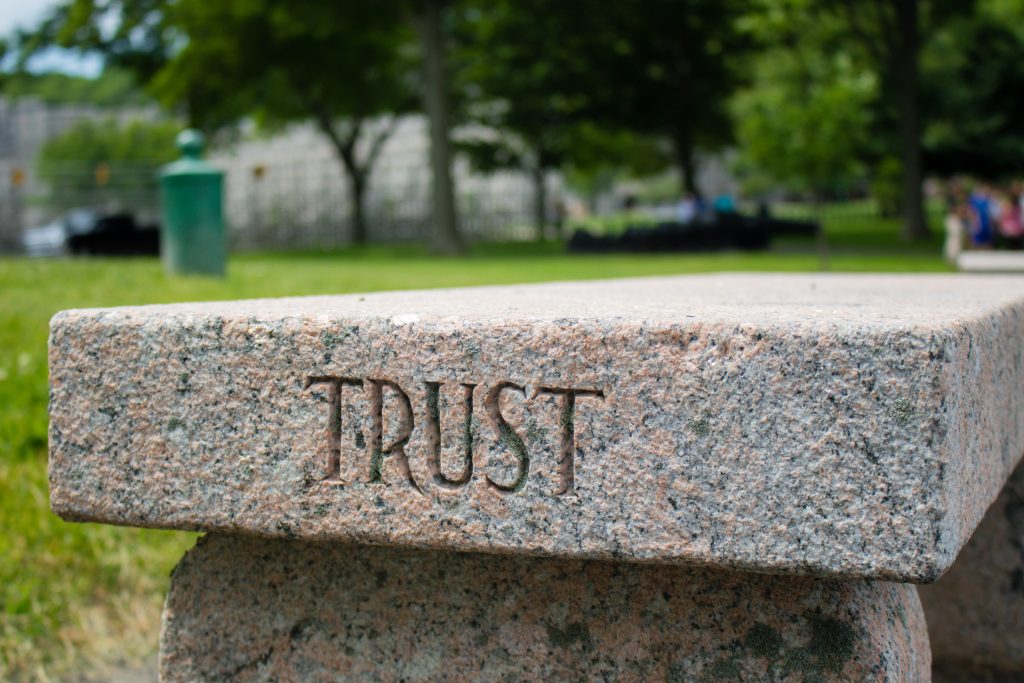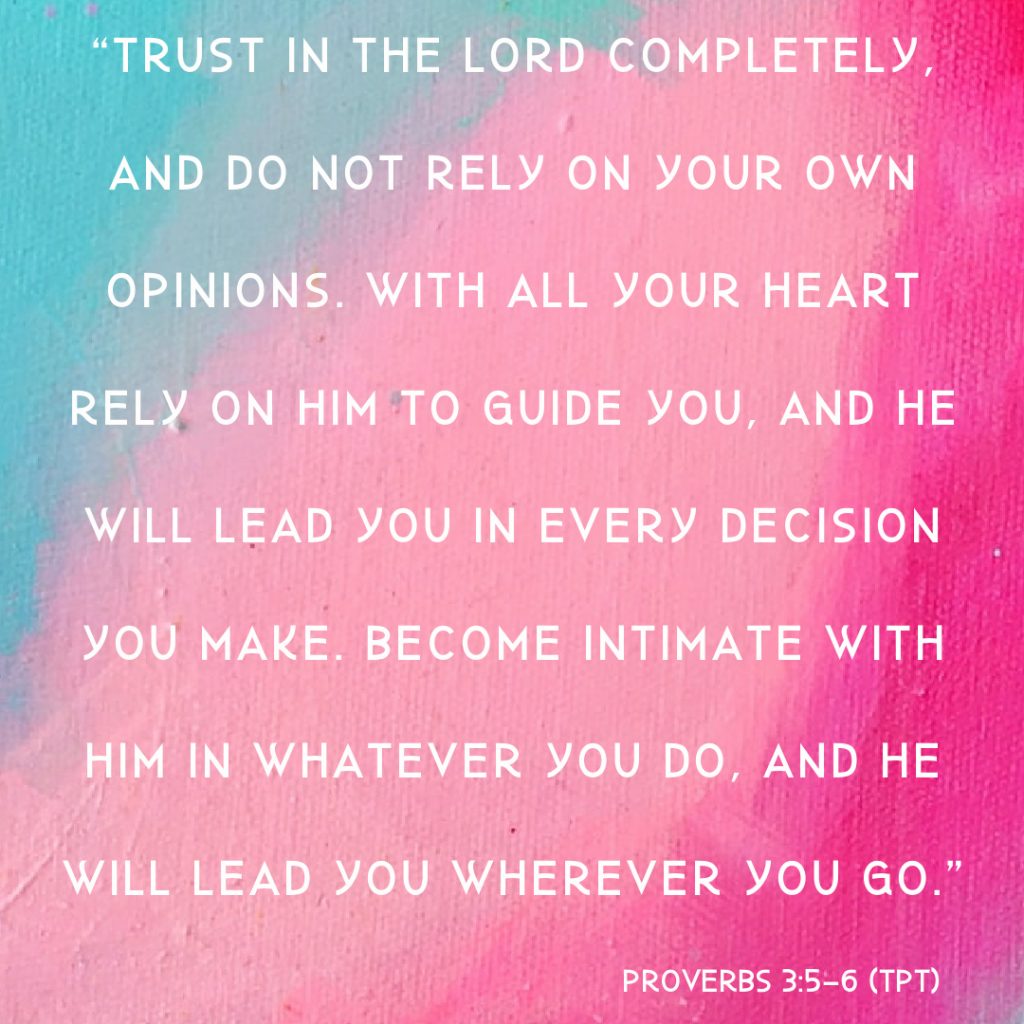Entering into diaper changes with the twins these days is like stepping onto a battlefield. (When I read that sentence back to Luke, he interjected that “entering the apocalypse” was a more accurate description.) From the moment I lift them onto the changing table until the very last onesie snap is buttoned up, they writhe and squirm, scream and sputter, and make my job as exhaustingly difficult as possible. They fight me in every way they know how, leaving us all in tears by the end, and all the more resistant to the next time we will be forced to wage this perpetual battle.
I wish they understood that if they would simply give in to the process—if they would allow me to change them smoothly and efficiently while chatting and singing together—the entire change could be a pleasant experience for all of us. I wish they could trust that I have their best intentions (fresh booties and clean new clothes) in mind, that I really do know what is right and good and best for their hygiene, and that I am good at this job, even when—to their young minds—it seems as though I intend only to torture them.
Lately, every time I enter the war zone that is the diaper change, my mind has been turning to the ways I am like this with God. He is my nurturer, caretaker, and provider who knows what is best for me. . . yet I resist Him in every way possible, balking and screaming about His methods because they don’t always feel good, and trying to entrust my care to my own inadequate methods.
The past several years have been a massive trust exercise for me. Through parenting, infertility, the pandemic, and most recently my mental health struggles, I’ve been forced to my knees, with no option BUT to trust that God is in control because I so clearly have no agency over my circumstances or outcomes. I’ve made great strides in learning to trust God in the big-picture aspects of my life’s trajectory, and even in many of the smaller day-to-day scenarios where I am tempted wrestle the reigns from God’s hands but have chosen to relinquish them instead. I’ve learned to set fear and foreboding aside, exchanging my own intentions, desires, and solutions for His.

There is one area, though, where I’ve begun to recognize a complete inability or even desire to trust God: the realms of knowledge, facts, and truth.
The chaotic events of the past year have exposed our nation to the precariousness of our institutions. We’ve become hauntingly aware that our world is not as safe or predictable as we’d imagined, and we’ve finally gained a (healthy) perspective of how little control we wield over our own future. I’ve largely found peace in the midst of the unknown, recognizing that any former semblance of control was a facade; this acknowledgement has been a difficult pill to swallow, to be sure, but I’ve done so, and been appreciative of this more accurate view of reality.
However. . . in this era of fake news and conspiracy theories and massive politicization of everything, I’ve struggled with not being able to accumulate accurate information about all that is happening. I have plowed through news podcasts, articles, and even books, seeking indisputable facts or simply someone whose perspectives I could trust on a plethora of issues, from how to approach COVID and the election, to how to navigate political sparring and racial tension, and even how to interpret God’s Word in light of these unprecedented circumstances.
My efforts have been futile: at some point, every teacher or source has let me down. At best, their information has been misguided; at worst it has been manipulative and clearly out of line with the few core things I do know to be true. I have not found a single organization or news outlet or political party or even one individual whose views fully align with my own. . . . And where I disagree with how to see the world, it’s impossible for me trust that what they see—and what they are telling ME to see (and feel and believe)—is right. And I won’t lie: this has left me feeling helpless and hopeless, plagued by a sense of loneliness in my views and nostalgia for an easier time when my world seemed so secure, and so very black and white.
But it is in this desolation that the Lord has met me, gently leading me yet again to trust in HIM. He has shown me that in looking to others for answers, I have been trusting them over God. I have given the keys of my assurance to untrustworthy caretakers, expecting them to fulfill roles they were never meant to hold. And in seeking to understand, I have made an idol out of little-t truths rather than turning my heart, mind, and trust toward the Ultimate TRUTH of WHO God is, what He says, and what I know of His character and His divine will.

I memorized Proverbs 3:5-6 at summer camp when I was ten years old, reciting those comforting words around a campfire while we danced along to silly songs. The passage has remained at the forefront of my mind in the decades since, but its message hasn’t always been close to my heart. Lately, though, these verses have become a lifeline, reminding me to turn COMPLETELY to God and trust only in Him—not in news outlets, not Bible teachers, not even what my own mind is telling me. My earthly sources will often get it wrong, but God NEVER will. He will guide me in every decision, in every opinion, in every step that I take.
I especially love these verses in The Passion Translation, which reminds me to “be intimate with him” in all that I do. This requires some effort from me: I need to be earnestly seeking knowledge from the Word, bathing in it daily and soaking up its eternal wisdom. I need to be in continuous prayer, talking with God over every decision and action, and making space for Him to answer. I need to confess my mistrust and my quickness to exchange earthly facts and human teachings for Godly Truth.
Lord God, help us trust in You and You alone—for our daily bread, our hourly knowledge, and our minute-by-minute assurance that YOU are in control.